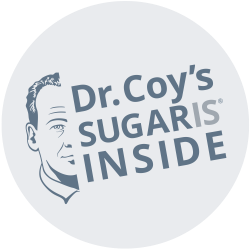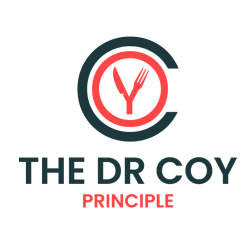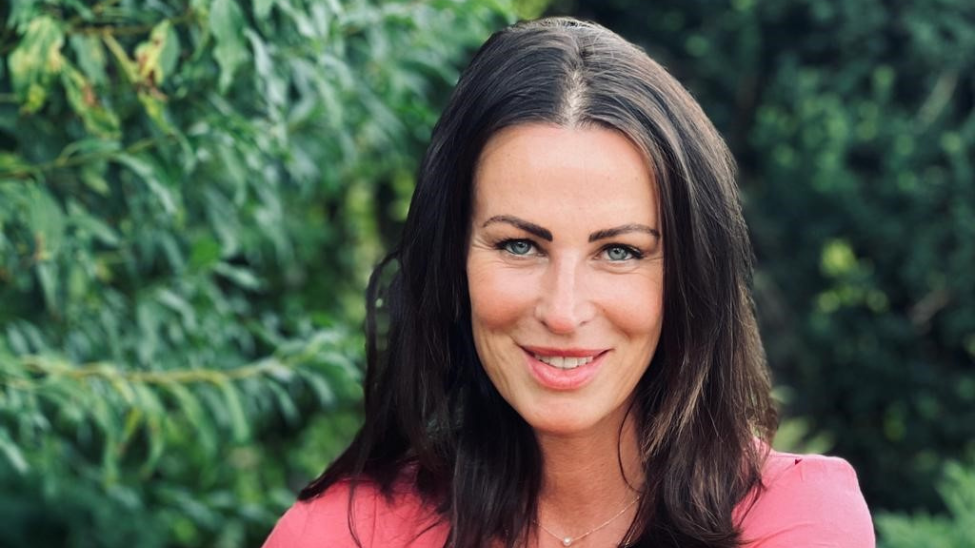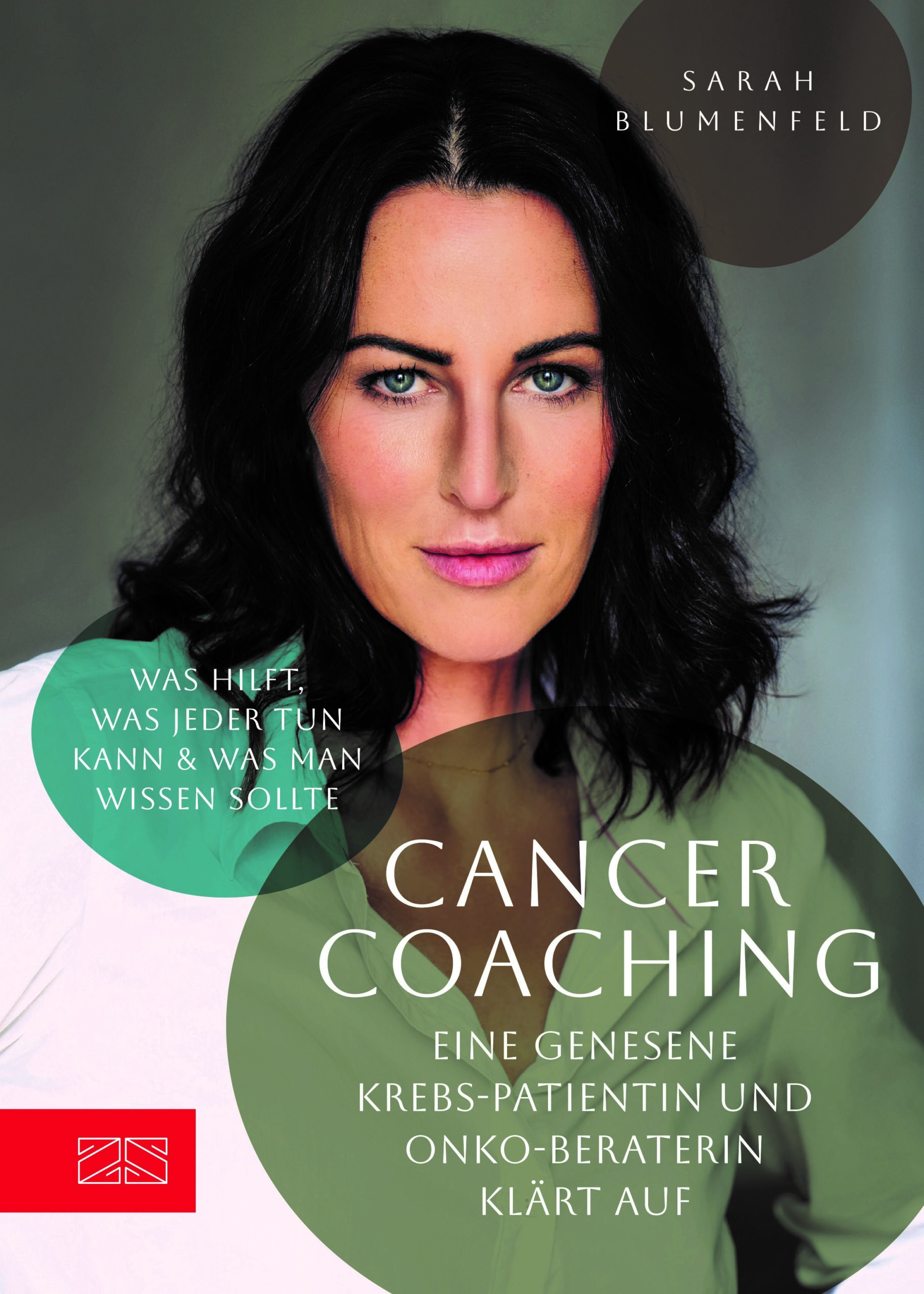After her third cancer diagnosis, and a fatal prognosis of only 6 months, Sarah Blumenfeld decided to take matters into her own hands. She drastically changed her diet and created her own holistic route towards recovery. Now, as a cancer coach and best-selling author, she is helping others safely structure their own recovery journeys.
On instinct, Sarah knew her diet would affect her body’s ability to heal. Dr Coy’s Principle became a crucial element in her understanding of cancer nutrition. Dr Coy’s guidance and food lists supported a safe yet balanced diet to give her body the necessary nutrients.
What inspired you to look for alternatives to conventional medicine to support your cancer journey?
I received my devastating breast cancer diagnosis three months after giving birth to my second son at age twenty-nine. Just a few months after my chemotherapy and a mastectomy, I received a further diagnosis of liver metastases with a fatal prognosis of only six months.
After three cancer diagnoses, I realized it no longer made sense to continue with chemotherapy, antibody therapy or even anti-hormonal therapy. I had already outlived my terminal prognosis by 2.5 years, but chemotherapy alone had not led to a cure. Also, I did not want to weaken my body further. I knew I needed a strong body and mind to be successful, so I chose to pursue other methods. There was only one way to find out if it would work.
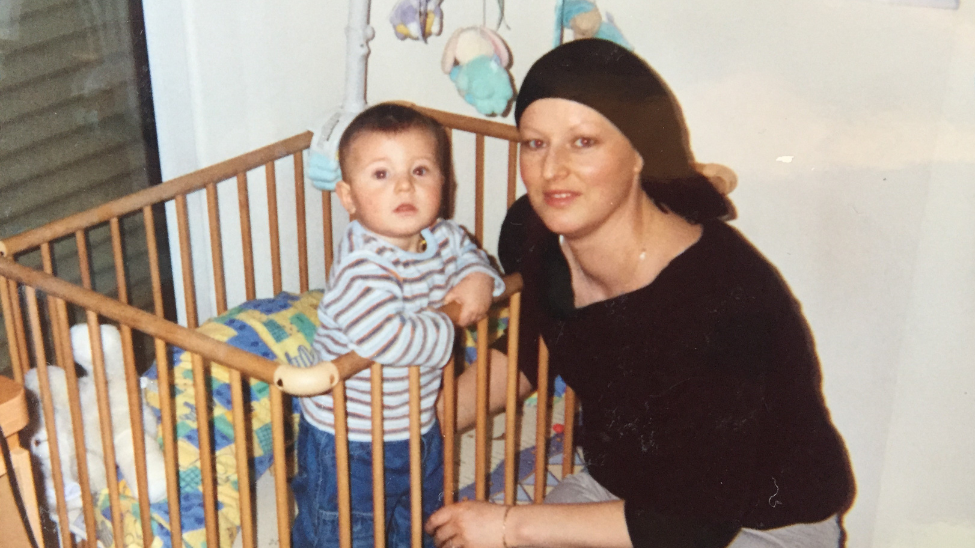
Did your doctors recommend a diet plan? How did you realize that diet would be so influential in your recovery?
Nutrition was never discussed with me. But I knew the healing process must have something to do with nutrition and mindfulness. During the first and second diagnosis, I started exploring various holistic options. One was intensive mental work, which I developed myself at home, as I was unable to find solution-oriented approaches with a therapist. That was all that was available to me at the time.
During the third diagnosis, my intuition was very strong – I knew I had to change my diet immediately. I didn’t have any information to guide me at this point, so I just followed my instincts and only ate vegetables for a short time.
I researched as much as I could about cancer nutrition and tried different diets.
When I went for my next PET/CT scan, the radiologist told me that the metabolic activity in the tumour was extremely low. He said he would assume it was a lipoma if he did not know my background and history. The doctors mentioned that my diet must have impacted the metabolic activity of the cancer cell – this motivated me to continue with my diet. But I knew I needed to find a more balanced diet, so I didn’t fall into a deficiency.
That’s when I found Dr. Johannes Coy’s Principle and realised I could incorporate a lot more foods into my diet.
How did you hear about Dr Johannes Coy? What was your initial reaction to his therapeutic principle?
When I was researching nutrition options in 2009, I visited a doctor friend who taught me how to follow Dr. Johannes Coy’s diet.
I completely understood the logic behind the ketogenic diet for cancer patients, and I was extremely happy to add more nutrients into my current diet.
The keto diet was still very strict, but I knew if I wanted to survive, I would need to be disciplined. When the latest studies on sports and cancer were published, I started incorporating an exercise program as well.
When I went through a six-week radiotherapy treatment, I adhered to the diet and the exercise program, and I had zero side effects. Towards the end, I began to feel fatigued, but by then I had successfully completed the radiotherapy.
Three months later, I ran my first half marathon on the keto diet. I started running a half marathon every year and worked my way up to running full marathons. I stayed on the keto diet and adjusted my carbohydrate intake to reflect my energy output.
I was amazed that I could continue doing an extreme sport while on the keto diet. My doctors repeatedly advised me to stop the keto diet and stop exercising. But I felt so strongly that I was doing the right thing for my body, because I felt good. I didn’t let myself be discouraged from this path.
What aspects of The Dr Coy Principle helped you the most in your journey with cancer?
The entire principle strengthened my energy and gave me courage when I needed it most.
The ability to take positive action over my own health motivated me and ultimately saved my life. Also, I never felt that following the diet was torture. It always tasted good, and it was easy to digest – all signs of a healthy diet. Avoiding carbohydrates and sugar has had the greatest effect on my wellbeing. Today, I am one of the rare long-term survivors; it has been twenty years since receiving my first diagnosis.
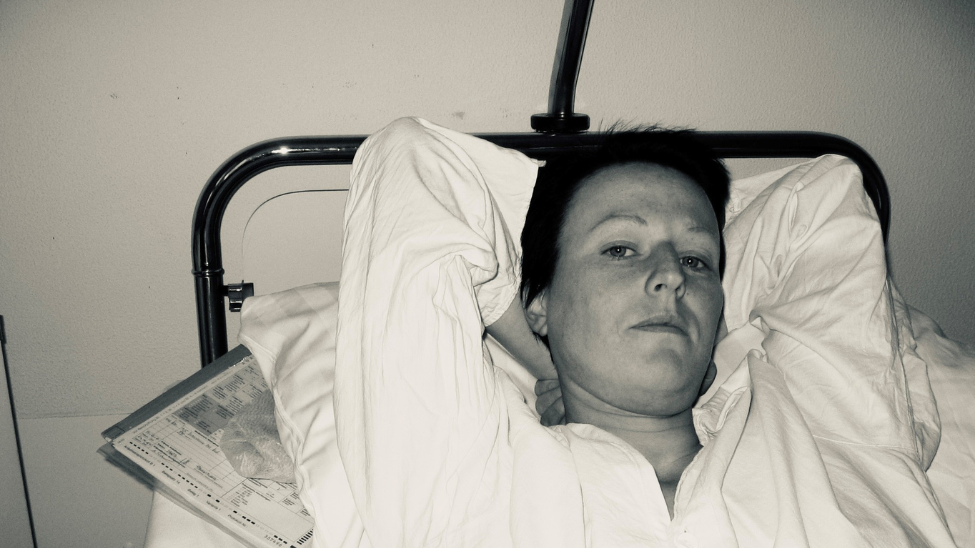
What changes have you made to your diet and lifestyle as a cancer survivor?
I am now very mindful of my food choices. As an athlete, I always thought I was eating a healthy, balanced diet. But when I took a closer look, I realised my diet could be optimised.
I no longer eat any processed foods and I exclude carbohydrates in the form of certain wheats/grains. During my recovery, Dr Coy’s sugar mixtures were not available yet, so I avoided all forms of sugar, which personally I didn’t find difficult. I could have half an apple a day, that’s all. Now, I use Dr Coy’s sugars and it’s remarkable that I can re-introduce some of my favourite sweet treats.
It was also important to have warm, cooked meals as a cancer patient. Raw vegetables can require too much energy for your body to process. You need to conserve energy for healing. If you must choose between committing to a diet that could possibly have a positive effect or dying, it’s an easy choice to make. This mindset helped me implement and stay consistent with my nutrition choices.
In your experience as a coach, what is the most common fear or uncertainty around diet for someone newly diagnosed with cancer?
The most common fear for cancer patients is the risk of losing too much weight and making mistakes that could cost them their lives. Which is why many doctors do not recommend the keto diet to their patients. I was told I should just ‘finally eat a piece of cake again’ to avoid losing more weight. But if you change your diet, and restrict certain things, your body will naturally lose weight. It’s more important to understand how to properly follow Dr Coy’s principle.
I’m so happy that recent study results prove the benefits of the keto diet for cancer patients. It can be frustrating speaking to oncologists about nutrition because you never receive a straight answer. There is a saying that goes: “if you ask ten doctors for an opinion, you will get eleven answers” – and it is true.
People also fear that the lack of carbohydrates will reduce their energy levels. But Dr Coy’s principle is formulated to provide the body with sugars that safely provide the body with energy.
The restriction of food can be emotionally painful since a lack of certain foods is associated with a poorer quality of life. However, once you are confident with following the principle, it is easy to make the change.
For anyone recently diagnosed with cancer, what would you want them to know?
It is important to understand what is happening to your body, and how you can take control of your health.
As a cancer coach, I always provide patients comprehensive information about their own illness, therapy and diagnostic options both inside and outside the clinic.
I collaborate with oncologists who consider a patient’s entire body. Their aim is to regain balance between both mental and physical health. This impacts a patient’s motivation and supports their conventional therapy treatments.
Creating a nutrition and exercise plan is the next step. I help patients incorporate diet changes into their daily lives and gradually build new habits.
A strong mindfulness and meditation practice also helps the body heal. When I was sick, I would meditate on specific visualisations for thirty to forty minutes, four times a day. I would envision a healthy liver, a healthy body, and truly believe in it. I would visualise the metastasis in my liver being killed, almost like a cartoon, and flushing them out of my body.
It’s important for patients to feel confident and grounded in their health choices. By taking ownership of diet and exercise choices, it’s easier to feel empowered in the healing journey. Everyone’s story is unique and requires different options.
I would never tell someone they have to follow the same formula I did – it’s better to understand their own situation and help guide them on their own path.
Learn more about Sarah’s coaching and workshops on her website.
To purchase her book, Cancer Coaching, please visit the publisher’s website.
